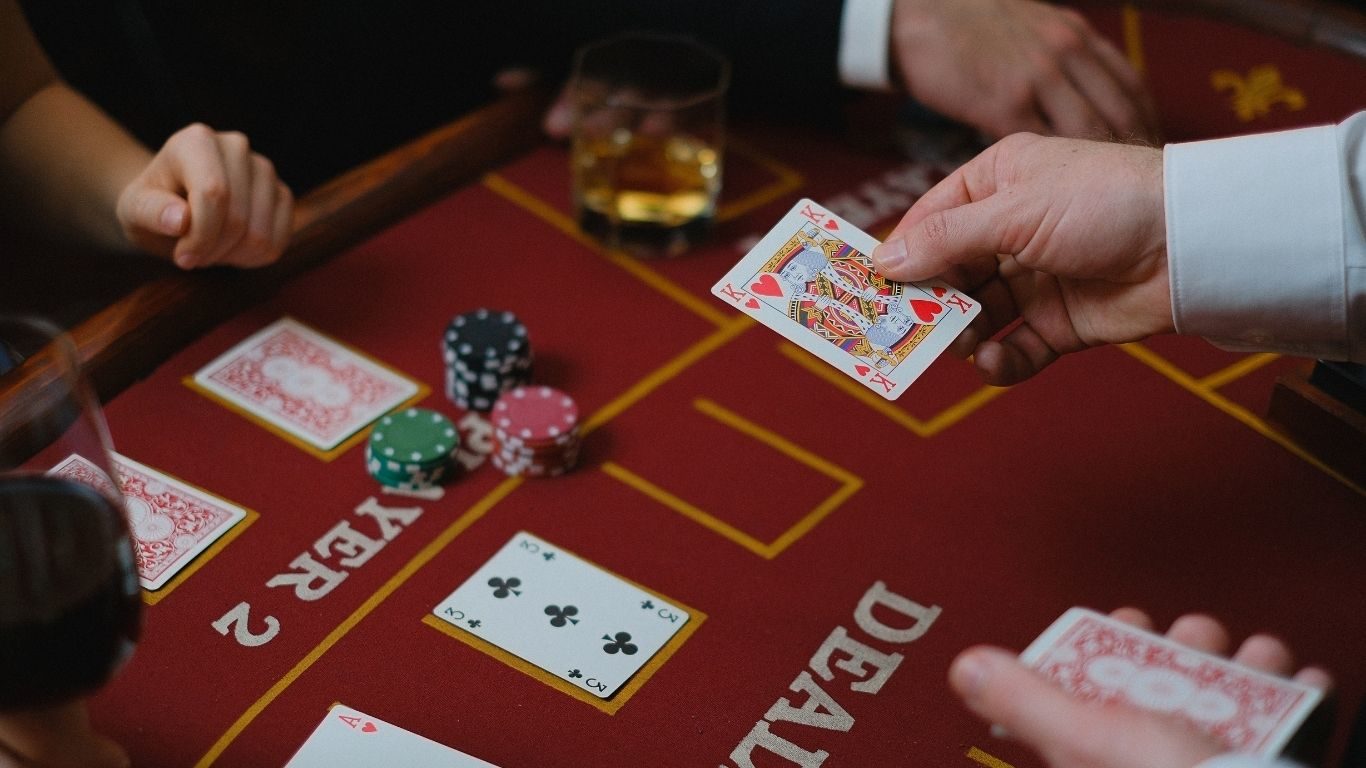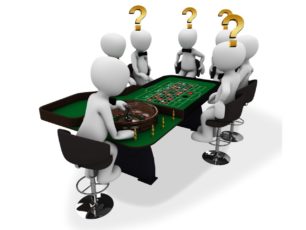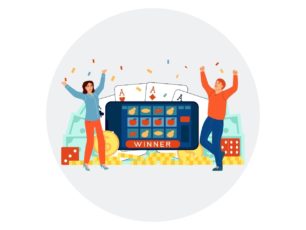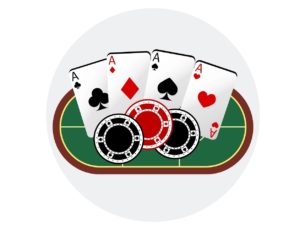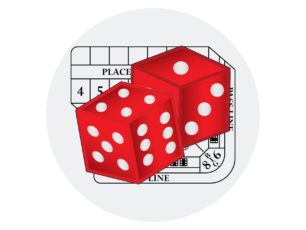What are the Basics of Blackjack?
Before anything else, though, it's always important to brush up on some basic blackjack strategy, especially if you don't have a solid grasp yet. We'll keep this section short so we can go straight to teaching you black jack tips.
The goal of Blackjack or Twenty-one is to have a hand that is closest to 21 without exceeding it (also called going bust). This game pits players against the dealer, and is played with up to 8 decks of cards. The card values are as follows:
| Card | Value |
| Point cards (2-10) | As printed |
| Face cards (Jack, Queen, King) | 10 |
| Ace | 1 or 11 |
With that familiarized, let's now move on to the gameplay sequence. If you plan to play on a live casino site, the gameplay remains exactly the same.)
1. Players place their initial bets in their respective betting box.
2. The dealer deals out two cards each to all active hands. Player hands are dealt either all face-up or all face-down, while the dealer hand has one card face-up and one card face-down.
3. Players are given the choice to hit or stand. If you hit, the dealer gives you an additional card. You can hit as many times as you want until you stand or go bust. If you stand, your hand remains as-is and you wait for the other players and the dealer to complete the round.
4. Players are given the choice to place side bets. The specific options vary between casinos, but some of the most common include:
- Insurance: If the dealer's face-up card shows an ace, you can stake half your original wager to bet on whether the dealer has blackjack.
- Split: If your hand contains doubles (two cards of the same value), you can split the cards into two hands. Each hand will then get its own separate bet and additional cards.
- Double Down: You double your initial bet and receive only one extra card.
- Surrender: You forfeit half your initial bet and sit out the round.
5. The dealer makes their actions, hitting until their hand has a value of at least 17 or goes bust.
6. Each of the players' hands are compared with the dealer's, and winning bets are paid out 1-to-1 (except for a blackjack, which typically pays 3-to-2). Players win when the dealer busts, the player gets a blackjack, or otherwise a higher valued hand than the dealer.
Blackjack Tips: 21 Do's and Don'ts for Twenty-One
Now that you’re up to speed on how to play the game, here are 21 do’s and don’ts of Blackjack to keep in mind the next time you step up to the blackjack table.
The last thing you want to do is walk up to a blackjack table without a grasp of the game’s simple rules. Our short game guide above should get you up to speed.
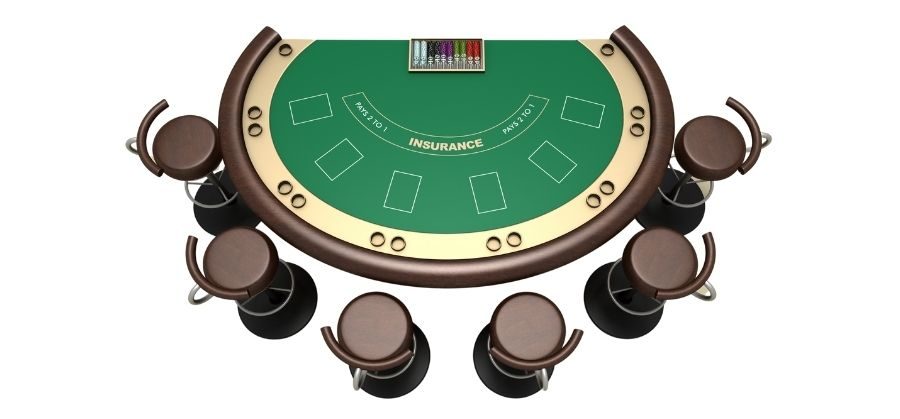
Limiting your bet amounts will let you spread out your bankroll over a longer session so you don’t lose it all too quickly.
Basic strategy is the collection of moves you can make in blackjack that provide the highest statistical chance of winning. Tried and tested over tens of thousands of games, basic strategy is the simplest and easiest way to improve your skills at blackjack.
It is a common impulse to see other players on the table as playing cooperatively against the house. However, this is actually not the case as blackjack treats each player’s hand independently of the others.
Real money casino sites in particular, are great places to start as you can play for very low stakes or even completely free.
Tying into tip #4, it is also a common mistake for new players to make bets based on the present decisions or the past outcomes of either yourself or other players on the table. The fact of the matter is that every hand in every round of blackjack is an independent.
This is a general tip that applies to all casino games and will, at the very least, keep you from going broke in a single night. Take as many precautions as necessary—for example, if impulse control is an issue for you, you could opt to bring a friend with you to keep you from going overboard.
Insurance is a side bet in blackjack that lets you make a separate bet on the dealer having blackjack. Because the dealer can only get a blackjack around 30% of the time, it is almost always a good idea to skip the insurance bet.
If you still have trouble memorizing basic blackjack strategy, casinos do let you bring a strategy card to the table for quick reference. Just don’t take too long reading the card and keep it off the blackjack table.
Shuffling the decks is one of thasino’s ways to reduce the advantage of strategies like card counting, and will employ techniques like having multiple shoes on the table or a shuffling machine to prepare freshly shuffled decks after every game.
To reduce the variability in the dealer’s moves, casinos will often have a fixed rule on their blackjack tables on whether to always hit or stand on a soft 17 (a hand of 17 with an Ace in it). In some live blackjack games online, the dealers always hit on soft 17, which gives about a 0.2% increase in the house edge. While this doesn’t seem like much, it does add up long-term.
As a game with a statistically low house edge, casinos pull out all the stops to tip the house edge further in their favour. In addition to their “soft 17” rule, it is advisable to avoid tables with payouts lower than the 3:2 standard for a blackjack.
This is an advanced strategy adapted from playing at poker casinos, and involves watching for involuntary movements or expressions (“tells”) from the dealer that could hint at them holding a high or low value card.
The drinks might be “on the house”, but you might end up indirectly paying for it all when the booze gets the better of you.
If you want to take your game to the next level, card counting could be a potential path to improve your blackjack skills and even gain an advantage over the house.
Many guides provide information on betting strategies like the Martingale or 1-3-2-6 systems, which tell you to increase or decrease your bet in response to the results of previous deals. While it can earn big short-term gains, it eventually loses out in the long term because of the casino advantage.
While blackjack is known for having a house edge of less than 1% if you follow basic strategy, that is still a statistical advantage to the casino and doesn’t take into account the short-term where you can lose your entire bankroll in a few hours of play.
As in poker, blackjack is as much a mind game as it is a numbers game. Keeping calm and sticking to your strategies will help avoid costly mistakes.
There will come a time when the winning or losing streak starts to overstay its welcome. Quitting early while you’re ahead (or at least cashing in your profits) will keep your bankroll intact before the situation goes further downhill.
Likewise, it is very easy to fall for the idea that certain outcomes in the future become more likely because they have not appeared in past outcomes. This is known as the gambler’s fallacy rule, and is not only false, but believing in it will actually result in more losses.
At the end of the day, blackjack is a game meant for entertainment. Whether you leave having won it big or lost your bankroll, what’s important is that you enjoyed your playing experience.
Boost Your Odds with Blackjack Tips
For a card game with such simple mechanics, blackjack has a surprising amount of strategic depth. That is one of the many reasons why blackjack has remained one of the most popular online casino games to this day. We hope these blackjack casino tips have pointed you in the right direction to take your blackjack game up a few notches.
Blackjack Tip FAQs
How do I increase my chances of winning blackjack?
Of the many strategies and tips for blackjack that we've covered, the most significant way to increase your chances of winning is to master basic strategy. Using basic strategy in your game has been found to decrease the house edge down to below 1%, one of the lowest of any casino game.
Is there a trick to blackjack?
The depth of the blackjack strategy means that there are many options available to you to increase your odds of winning. However, the most effective of these is probably card counting, the system of tracking all the cards that come into and out of play such that one can predict which rounds can give more likely wins.
This strategy has been used in top casinos in Canada, Las Vegas, Macau, and elsewhere around the world to great effect. However, there’s a pretty major catch: while card counting isn’t necessarily illegal, doing it will get you in the casino’s bad graces and can get you kicked out of the casino, if not banned entirely.
Is it better to hit or stay on 16 in blackjack?
The decision to hit or stay on 16 is a tricky one as it is generally a losing hand against a dealer that will always stand on 17 or higher. However, we can go back to basic blackjack strategy to find our answer, which varies depending on what kind of 16 we have (hard 16, soft 16, or doubles) and the value of the dealer's face-up card:
| If your hand... | Then... |
| Has a hard 16 (no ace) | Stand (if the dealer up-card is 6 or less) Hit (if the dealer up-card is 7 or more) |
| Has a soft 16 (has an ace) | Hit (or double down if possible) |
| Has 16 in doubles (two 8s) | Split |
How do you get good at blackjack?
As with any skill, getting good at blackjack is a matter of practice. Many of the most skilled players have honed their craft over many years. So while you might not reach their level of skill, following the black jack tips in this guide can help you get there.
What should you not do at a blackjack table?
We've shared 10 "don'ts" in our list above, but of these, we've saved the best for last, you should not cheat at a blackjack table.. And by "cheating," we mean using computer programs, accomplices, or other underhanded means to gain an advantage over the casino—all of these techniques are illegal and could take you straight to jail. (To be clear, advantage play techniques like card counting is not illegal.)
Why do you always double down on 11?
It is a part of basic strategy to double down on 11 whenever possible (although some will advise to only hit if the dealer shows an ace on the face-up card). The reason for this is that 11 is one of, if not the most favorable hand to hit on, with a strong chance to land a blackjack with your next card. And even if you don't land a 10, you still have a pretty good chance at beating the dealer hand.
